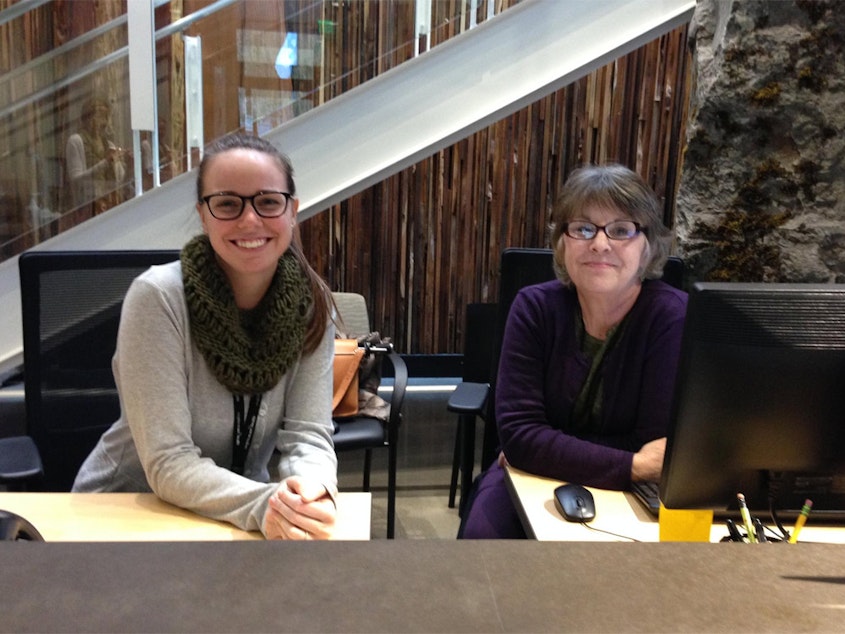‘No Wrong Door’: New Seattle Clinic Responds To Lack Of Mental Health Care

When it comes to providing care for people with mental illness, Washington ranks in the bottom five in the country.
The state has one of the highest percentages of adults with mental illness and one of the worst records for not getting them the treatment they need. One Seattle clinic wants to change that.
The Meridian Center for Health opened last December. Its patients are mostly low-income, usually with multiple and complex needs.
When you walk through the doors it’s not clear what kind of clinic it is. And that’s intentional. The mantra here is “no wrong door.” This helps remove some of the stigma associated with seeking mental health care that can be a barrier for people.
Meridian provides medical, dental, mental and maternal support services all under one roof as a partnership between Neighborcare Health, mental health provider Valley Cities, and Seattle-King County Public Health.
Sponsored
It’s a new approach that makes it easier for people to get care, especially mental health care, when they need it. Otherwise the problem could get worse and would require intensive, and often expensive, services down the road.
When Michelle Hidecker first came to the Meridian Center for Health in Northgate, she was scared, shaking and feeling hopeless.
Hidecker has post-traumatic stress disorder. Over the years, she’s learned to manage her anxiety and other symptoms with medication and coping skills learned through counseling.
But last December, just days before Christmas, Hidecker, her husband and teenage son became homeless. It started a cascade of crises. “We were very blindsided,” Hidecker said.
Hidecker didn’t want to disclose specifics about what happened to protect her family’s privacy. But she will say she was scrambling for help.
Sponsored
The situation triggered her PTSD symptoms. She knew she needed to take care of herself in order to take care of her family. “I came running in here in a panic."
She thought it would be weeks before she could see anyone, but she met with a social worker who connected her with trauma specialist Susie Kroll.
“They gave me a little brief history about what was going on and what Michelle was experiencing," Kroll said. "I walked in and I said, 'You look like you’re having a rough go at it today. My name is Susie, how can I help you?'”
Hidecker also recalled Kroll saying, “This is my specialty and I’m going to get you through it.”
“She’s been a rock for me,” Hidecker said.
Sponsored
That day, Hidecker saw a physician, a social worker and a crisis counselor all in the same afternoon.
In most circumstances, she would’ve been sent to different appointments in different clinics, probably in different neighborhoods. It might’ve been days, even weeks, before Hidecker would’ve gotten help.
Having the three services in the same building isn’t just about sharing office space. Kroll said they actually work together and function as if they’re an extension of their colleagues.
“We’ve learned what to listen for -- for the people in this building and for the people that provide services,” says Kroll.
The providers keep their eyes and ears open for what patients may need. “I know cues and phrases that would be helpful for a doctor or nurse to know, or a dentist,” Kroll said. “And they hear words they know would trigger them to call us and talk to behavior health people.”
Sponsored
According to a recent state report, more than 25 percent of adults in Washington have mental health illnesses that aren’t getting treated.

